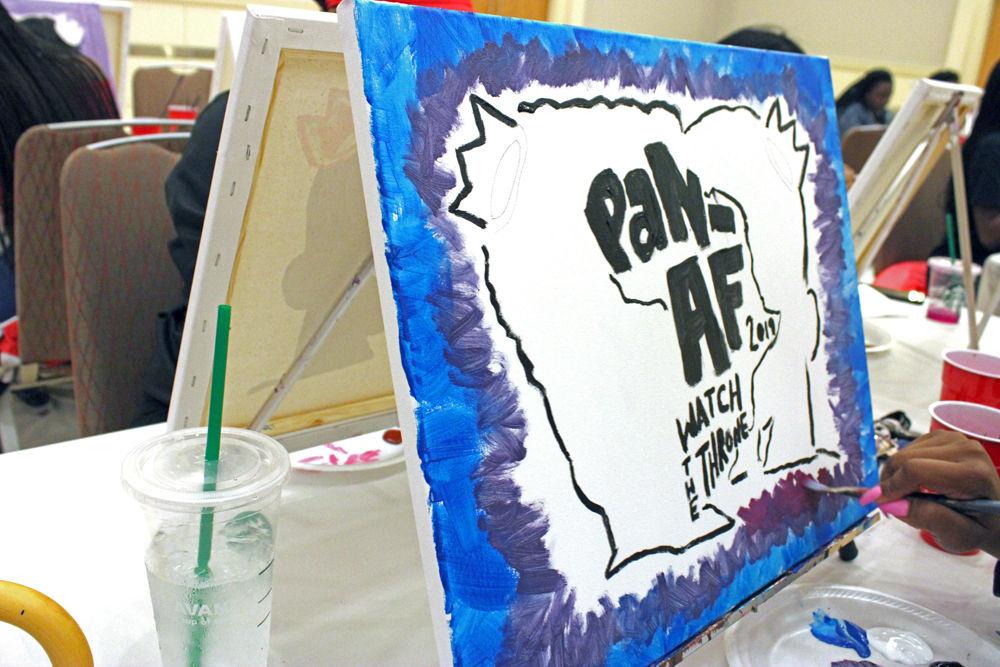Pan-Afrikan Week is an annual event hosted by the University Activities Board and the Black Students Board that focuses on uplifting and celebrating black students and black culture on NC State’s campus. Events throughout the week will highlight black culture and the experience of being black at a predominantly white institution.
Christian Carter, a third-year studying sociology and the chair of the Black Students Board (BSB), said that Pan-Afrikan Week gives black students on campus a chance to celebrate themselves and to be celebrated by others.
“Pan-Afrikan Week is a week given to the black students and students of African descent where we really get to celebrate our blackness and where we come from,” Carter said. “It’s just our week to have fun and be around each other and congregate that people look forward to every year.”
Naomi Ejim, a fourth-year studying Africana studies and the president of the African Student Union (ASU), said that the goal of Pan-Afrikan Week is to make students of African descent feel comfortable on campus.
“[Pan-Afrikan Week] is by the members of the African Diaspora, for the members of the African Diaspora,” Ejim said. “It’s important to me because, being a minority on State’s campus, more often than not a lot of programs that the university puts on are not for people who look like me. It gives me the opportunity to be my unique self and no one can check me.”
Carter said she felt that Pan-Afrikan Week is important to keep the number of students of color on campus from decreasing any more than it already has. In fall 2008, black students made up 8.5% of NC State’s total enrollment, compared to 5.8% in fall 2018, according to the Office of Institutional Research and Planning.
“NC State is a primarily white institution, so that can be really hard on a lot of black and brown students on campus,” Carter said. “Our numbers here at State have been dwindling the last couple of years, so it’s definitely more important now than ever to keep our students uplifted and comfortable and to make them feel safe and like they belong on this campus as much as anyone else.”
According to Carter, Pan-Afrikan Week is also an opportunity to highlight black organizations on campus and the work that they do.
“We gave outside organizations a chance to program, which is something we’ve done in the past as well,” Carter said. “It’s not just about BSB, but about BSB helping other organizations and other black organizations be uplifted and do what they want to do as well.”
ASU is one of the outside organizations that was brought in to help program for Pan-Afrikan Week, Ejim said.
“ASU actually starts Pan-Afrikan Week,” Ejim said. “The first Saturday of Pan-Afrikan Week every year is African Night. That’s how we give our little bit of involvement in the week and kind of bring it back to the motherland.”
The theme for this year’s Pan-Afrikan Week is “Watch the Throne,” which is meant to celebrate the royalty in every individual, Carter explained.
“‘Watch the Throne’ basically means claiming your throne or your royalty and what makes our students royal,” Carter said. “This is more than just our lineage, but it’s the stuff we do, our culture, the clothes we wear, our dances and everything like that. It’s just saying that we’re all worth celebrating.”
Ejim says that not everyone is satisfied with how Pan-Afrikan Week is being presented. She says that some groups on campus still don’t feel represented during the week.
“I think [University Activities Board] does a great job of planning Pan-Afrikan Week; however, I think there’s always room to grow,” Ejim said. “There’s recently been a lot of conversation about how Pan-Afrikan Week isn’t as inclusive to other parts of the African Diaspora besides Africans and African-Americans, but I feel like that’s a two-way street. The communities that want to be represented need to come forth, and BSB needs to also give them a larger platform to come forth, but I definitely feel like BSB is doing the best that they can right now.”
Looking forward, Carter is excited about the future of Pan-Afrikan Week, saying she hopes Pan Afrikan Week’s 50th anniversary is the largest event yet.
“It gives black students that sense of ‘We see you, we hear you, and we’re doing this for you,’” Carter said. “Next year is our 50th anniversary, so that’s really exciting. It should be bigger and better than ever. So, look forward to that.”
Pan-Afrikan Week will continue to host events through the rest of the week with the African American Textile Society’s Annual Fashion Expose on April 11 at 6:30 p.m., the DanceVisions Annual Spring Concert on April 12 at 7 p.m., a Tent Party on April 13 at 1 p.m., the National Pan-Hellenic Council’s Pan-Afrikan Stroll Off on April 13 at 6 p.m. and the Silent Disco on April 13 at 11 p.m.. You can find a full schedule of Pan-Afrikan Week events on their website.








